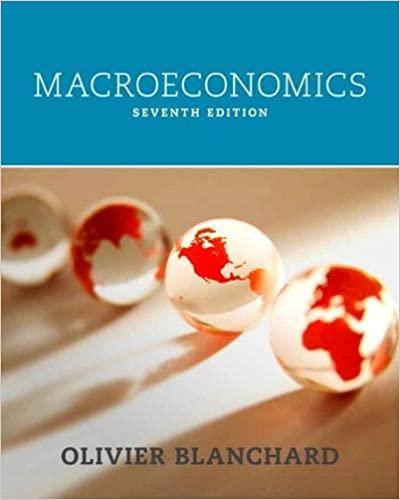Ricardian equivalence and fiscal policy First consider an economy in which Ricardian equivalence does not hold. a.
Question:
Ricardian equivalence and fiscal policy First consider an economy in which Ricardian equivalence does not hold.
a. Suppose the government starts with a balanced budget. Then, there is an increase in government spending, but there is no change in taxes. Show in an IS-LM diagram the effect of this policy on output in the short run when the central bank keeps the real interest rate constant. How will the government finance the increase in government spending?
b. Suppose, as in part (a), that the government starts with a balanced budget and then increases government spending. This time, however, assume that taxes increase by the same amount as government spending. Show in an IS-LM diagram the effect of this policy on output in the short run. (It may help to recall the discussion of the multiplier in Chapter 3. Does government spending or tax policy have a bigger multiplier?) How does the output effect compare with the effect in part (a)?
Now suppose Ricardian equivalence holds in this economy. [Parts (c) and (d) do not require use of diagrams.]
c. Consider again an increase in government spending with no change in taxes. How does the output effect compare to the output effects in parts (a) and (b)?
d. Consider again an increase in government spending combined with an increase in taxes of the same amount. How does this output effect compare to the output effects in parts (a) and (b)?
e. Comment on each of the following statements:
i. "Under Ricardian equivalence, government spending has no effect on output."
ii. "Under Ricardian equivalence, changes in taxes have no effect on output."
Step by Step Answer:






